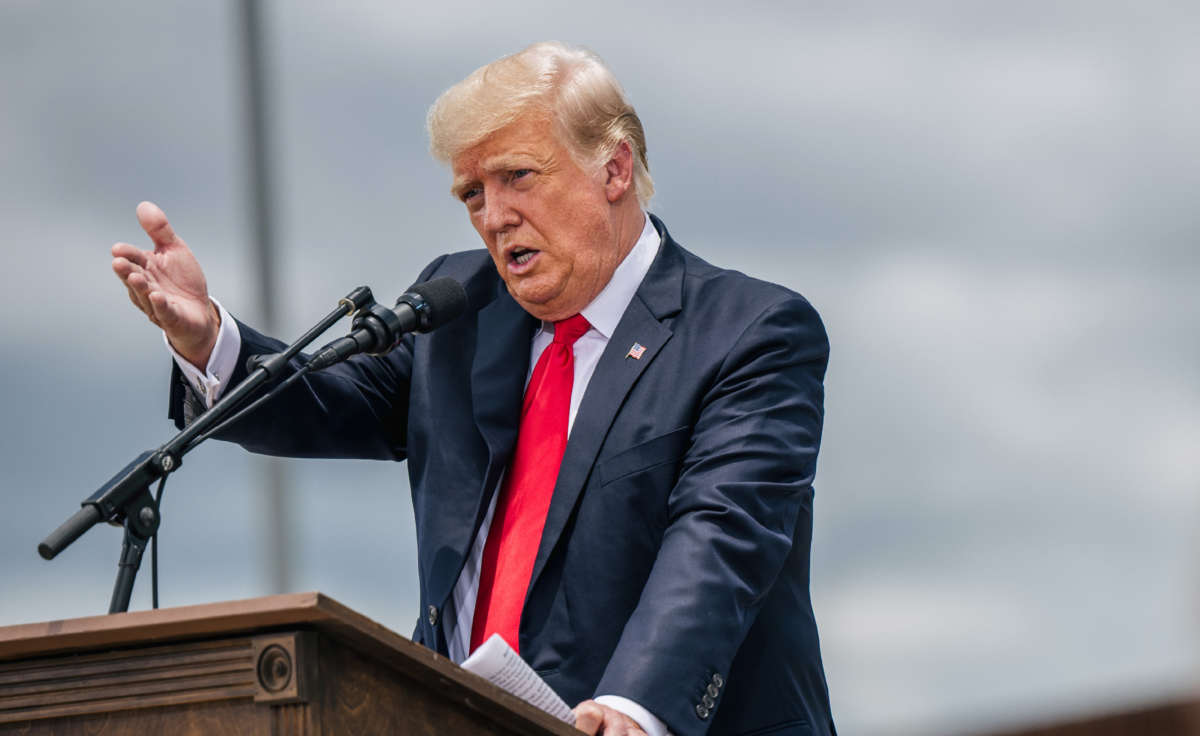Support justice-driven, accurate and transparent news — make a quick donation to Truthout today!
A Democratic congressman has introduced legislation that would bar former President Donald Trump from being able to serve as speaker of the House of Representatives without being an actual member of that legislative body.
A little-known quirk of the Constitution grants members of the House the ability to name whomever they want to serve as speaker. “The House of Representatives shall choose their speaker and other officers,” Article I of the Constitution states.
In practice, there has never been a speaker of the House selected who was not also elected to serve in the House in the first place. But many Trump supporters have suggested that Republicans, if they win the 2022 midterm races, could name the former president to that role.
After that is done, these Trump loyalists have posited, Trump could lead the call for impeaching both President Joe Biden and Vice President Kamala Harris. If they are removed from office successfully, Trump, theoretically as speaker of the House, would then become president, as that position is the second in line (after the vice president) to the presidency.
There are many barriers to that actually happening, however, including the fact that two-thirds of the Senate would have to go along with the idea for it to be successful. But Rep. Brendan Boyle (D-Pennsylvania) believes more should be done in order to ensure Trump could never be named to the top post in the House of Representatives.
Boyle introduced a bill on Monday titled Mandating that being an Elected Member Be an Essential Requirement for Speakership (MEMBERS) Act. The bill would only allow a House member, currently elected to serve in that chamber of Congress, to become speaker of the House.
Boyle made no bones about who the bill was targeting, naming Trump specifically in a statement he issued promoting the legislation.
“The Speaker of the U.S. House is second in the United States presidential line of succession,” Boyle said. “That Donald Trump’s name would even be tossed around as a potential speaker in the people’s house, should serve as an alarm bell that our current requirements need to be amended in the name of protecting our nation and our democracy.”
During a radio interview in June, Trump himself described the idea of him becoming speaker of the House “so interesting.” But later that month, a spokesperson for the former president said that Trump had “zero desire” to become speaker.
Trump supporters of this plan are also counting on Republicans doing well in next year’s midterm elections in order to have the ability to control the House (and thus name its speaker). Although the main opposition party to the president generally does well in their first midterm election contest, Republicans are currently showing they may not be able to win Congress in 2022. Endorsement of the “Trump for Speaker” idea may also help to doom their chances of taking control of the House.
According to a Quinnipiac University poll published in May, just 40 percent of voters say they want Republicans to win the House in the midterms, while 49 percent say they want Democrats to remain in power. On whether voters preferred a candidate that mostly agreed with Trump’s views or not, only 39 percent said they wanted to vote for Trump-aligned candidates, while 53 percent disagreed with doing so.
Press freedom is under attack
As Trump cracks down on political speech, independent media is increasingly necessary.
Truthout produces reporting you won’t see in the mainstream: journalism from the frontlines of global conflict, interviews with grassroots movement leaders, high-quality legal analysis and more.
Our work is possible thanks to reader support. Help Truthout catalyze change and social justice — make a tax-deductible monthly or one-time donation today.
